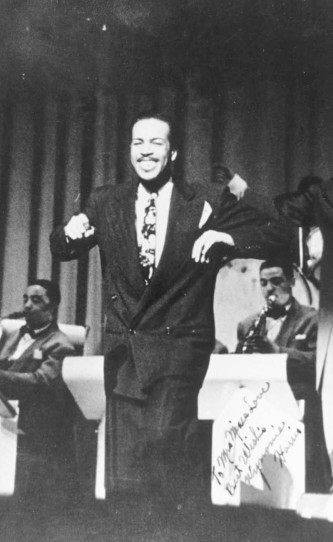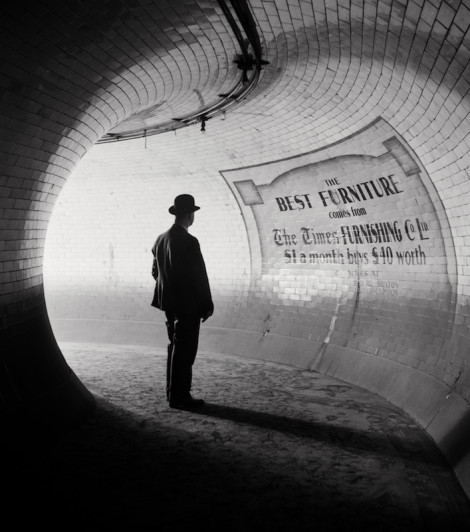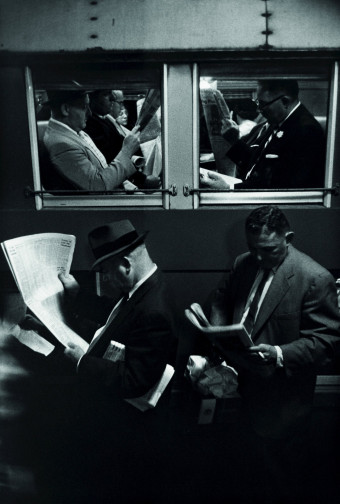
William E. Jones, photography.
“…our new stories have a strong tendency to stabilize a world arranged according to the needs of techno-capitalism. The second is more subtle: they all involve the assumption that everything can be explained in mechanistic terms, that everything is, in a sense, robotic.”
Curtis White
“The American city has no problems that are its own because, in the last analysis, our cities aren’t cities at all. They are structures for the maintenance of social inequality.”
Curtis White
“In 2011, the U.S. Centers for Disease Control and Prevention (CDC) reported that antidepressant use in the United States has increased nearly 400% in the last two decades, making antidepressants the most frequently used class of medications by Americans ages 18-44 years. By 2008, 23% of women ages 40–59 years were taking antidepressants. The CDC, on May 3, 2013, reported that the suicide rate among Americans ages 35–64 years increased 28.4% between 1999 and 2010 (from 13.7 suicides per 100,000 population in 1999 to 17.6 per 100,000 in 2010). The New York Times reported in 2007 that the number of American children and adolescents treated for bipolar disorder had increased 40-fold between 1994 and 2003. In May 2013, CDC reported in “Mental Health Surveillance Among Children—United States, 2005–2011,” the following: “A total of 13%–20% of children living in the United States experience a mental disorder in a given year, and surveillance during 1994–2011 has shown the prevalence of these conditions to be increasing.”
Bruce Levine, Alternet
“The projector at the back of our heads is simply the “place” in the psyche from which all the shots that make up a film can be viewed simultaneously as if assembled into one.”
James Penney
My memory of my pre-teen, and early teen years is permeated with images and situations, feelings, that involved the families of my parent’s friends, the families of my friends, some of them, and then just the houses of strangers. My anecdotal sense of the American white working class, from the late 50s (I was born in 51) through the sixties, was one of a gnawing despair almost. The landscape I remember is a deeply neurotic self hating white landscape. The fifties had promised something, and it hadn’t materialized. The destruction of unions was huge, of course, but for those of us in southern California and the West in general, the southwest anyway, the union issue was felt less acutely. The sense I had was that a junk culture had formed — people owned inordinate amounts of junk. Bad cheap clothing had hit the market, and it was the very front edges of a total loss of personal style in white America. The real core memory though, has to do with a sense of erotic melancholy — unhappy marriages, and balding middle aged white men, men who had aspired to some vague idea of *success*. But it hadn’t happened. My parents didn’t know any successful people. These households were angry and bitter and everyone drank too much. They made passes at each other’s wives, which at age eleven or twelve or thirteen was only dimly sensed and felt. But it *was* felt. The soured sexual energy of frustrated wives, and a hatred they felt for their loser husbands. This was endemic. I recall driving out to new tract housing developments with my parents. Places where nobody’s lawn had had time to grow yet. People would have only half finished kitchens, water damaged rugs and floors or wires sticking out from unfinished ceilings, but they’d have a new pool table in the garage (ah, the rec room). And that table would have gold or red felt. Nobody could play for shit, though. Nobody was serious in how they approached recreation. That came later, I think. I would have to play with the sons or daughters of these people. Usually angry aggressive young boys, hyper active (they were all fucking hyper active, at least in my memory) who wanted to do jock things, sports things. Which was fine. I could do that, up to a point. I remember they had the radio on, these boys. I remember late 50s rock and early 60s. It was the first time I heard Hot Rod Lincoln, by Johnny Bond. At some house in Pacoima or Simi Valley or Whittier. Long drives it seemed then, on the empty freeways of the late 50s. These recollections have to do with my sense of the hidden white history of america.

Wynonie Harris
It is a history of divorces, resentment, failure and soul wrenching racism and bigotry. White America, the phantom middle class, was all illusion anyway. Perry Como and the Ed Sullivan Show. The only real artists were immigrants, blacks, Jews or out in So Cal, latinos. White families watched Burns and Allen, very funny, but deep down they knew Burns was a Jew. Black music — hell, everyone KNEW black music was the best. Perry fucking Como? Come on. The rural backwaters of the south had real music, the last time white people really sang. Hank and Roy Acuff and Lefty Frizzel and Patsy Cline. Or the unique secret sound of New Orleans musicians. If a segment of the privileged population knows that others, people they order around at work, have the real genius of American culture, it is only going to intensify their resentment. Rock and roll came in the form of Elvis — and again, we all knew, even at a young age, that Elvis was stealing his juju. That was ok, to a point. I liked Elvis. Everyone I knew did. My friends. But we also knew, quickly, who Big Bill Broonzy was, or Wynonie Harris or Louis Jordan, or Big Joe Turner. Elvis just went and threw a country white truck driver schtick on Wynonie “chick chasin’and money wastin'” Harris’s stage show. So deep down those men who hadn’t made it to the University, who didn’t have any union strength any longer, not west of the Rockies, and who knew that all that quarter to three cool of Sinatra wasn’t really quite white either. Some dago and his dago culture. They felt less. There was a collective and deeply repressed understanding that nothing of white suburban conformity was going to rescue them. It did not nourish them.
If one looks at the old film footage, newsreels, from the the first decade of the century, whether New York or LA or San Francisco — people dressed with dignity. It might seem clownish from a wrong distance, but those working class men in handlebar mustaches, and black derbies, or beards and suits — and women in elaborate dresses with bloomers — one senses something that had been personally won in those looks. I remember hearing Richard Burton talk of the dignity of his coal miner father and his friends. That they looked down on those too timid to go down into the mines. By the 1950s — by the end of the 50s, that sort of dignity had been stolen from white america. And deep down they knew they survived by stepping on and trying to ridicule the minorities they might, occasionally, cross paths with.

E.O. Hoppe, photography. (British Museum Station, London, 1937)
Curtis White has written that art teaches what we want. And he also said, art is resistance. I believe both statements are true. Today, that white middle class, which was a white barely working class, is more often than not simply unemployed. Much of this is technology. Smart machines. Robots. And while the economic dimension is crucial in all this, it’s not what I’m really writing about. I think equally significant is that the population — and I’m speaking here, really, of the U.S.– is suffering a collective mental breakdown. There is promise that hasn’t been broken, and there is now hardly any promises left.
“Giving someone your undivided attention for an hour is an incredibly valuable gift. Combining that with a skill in some form of “grooming”—hairdressing, manicure, massage and the like—enables you to charge for what essentially is a social bonding activity. The same is true of the various “personal development” industries—counseling, personal training, personal shopping, image consultancy—and of course the caring industries.”
Frances Coppola (economist not director)
There are also hardly any jobs. The employment future is one of service sector jobs, but more, its really a servant sector. The economic inequality has reached max — but the telling reality in this is that the elite 1% seem as miserable as the unemployed who scrounge to find jobs waiting on them. For the elite ruling class is 90% white. Cutting across all of this is the erosion of curiosity, and access to education. And additionally, as Curtis White and a host of others have pointed out, the reliance on computers has resulted in a decrease in actual human skills. Doctors cant diagnose, pilots can’t fly (in crises situations), and architects can’t draw. And I would add, writers can’t write stories. And the mass audience can no longer follow even relatively simple stories. Audiences cant audience, if you like.

Patrick Joust, photography. (Decommissioned statues meant for President’s Park, Houston).
White quotes Nicholas Carr, on getting to know a place:
“It provides a sense of personal accomplishment and autonomy, and it also provides a sense of belonging, a feeling of being at home in a place rather than passing through it.”
I have written a good deal about this idea of place, for I think it is hugely important. Those depressing suburban housing developments I visited as a boy are depressing in no small measure because nobody who lives there had anything to do with their creation. They are alienating and alienated. This deskilling of labor coincides with a loss of language skills, and that with crappy education, and all of it ends with this atrophied sense of curiosity. Men like Donald Trump are no more curious about the world than are their admirers. And all of this contributes to the pre conditions for fascism. But it is also, now, a collective psychosis. Literally, I think.
Contemporary culture is saturated with appeals to scientific authority. And I encounter countless people, men and women both, who imagine themselves *reasonable*. Which apparently means, to them, rational and sober and realistic. The fact that most people, if not close to literally all people’s lives today are deeply ambivalent and anxious never seems to bother their belief in technology and science. The new servant class is there only to flatter and mollify. I remember a girl I knew who was going to college and her major was *hospitality management*. She wanted to be a ‘greeter’, most likely at a resort of hotel. There is cultic quality to personal appearance today, for the affluent. All of this has been written about a good deal, the personal trainer syndrome, and masseuse, and personal dietician. Or statistics on the cosmetic surgery industry. Less examined is the psychic toll, and the cultural and political implications of this internalizing of self loathing.

Gottscho-Schleisner collection. 1950. Unknown photographer.
There are several avenues of approach to this new world of our robot overlords. The overriding factor has to do with the limiting of experience. And it seems to me this is self-limiting, but only after the cleansing of opportunity. Coerced self limiting, as it were. And in turn I see something of a damaged capacity for certain intense feelings. Intimacy, love, and empathy. Freud saw early childhood shaping the parameters of desire. That impulses that give expression to the libido are divided into conscious and unconscious. And all of it under an umbrella of disappointment and frustration. James Penney wrote (on Freud’s early essay on transference)…“ The consequence of this libidinal splitting is that the social interactions of adulthood are cast under the imposing shadow of “anticipatory libidinal ideas. — expectations, both conscious and unconscious, as to the dividend in pleasure that interaction with a given party will yield. Freud phrases his formulations conditionally, stating that only those subjects whom reality has failed to satisfy will fall victim to the insistent and irrational powers of love.”. Nobody, thought Freud, escapes. Penney goes on…“everyone suffers in everyday life from the effects of the stringent conditions they unknowingly lay down as prerequisites for engagement with a social world that, as a result, becomes prone to yielding mainly disappointment and frustration. Unconsciously, we abdicate the power to recognize and legitimize our being to certain others—individuals, certainly, but also institutions, brands, associations, identities—which then begin to act as magnets for libidinal investment. Freud’s startling contention here is that infancy’s inevitable emotional frustrations program us in our maturity to seek out particular social agencies blessed with the traits necessary to qualify as worthy alter egos cast off into the space of the Other.” The society that has abandoned its population, has rejected ideas of mutual care and assistance is then one that is going to see that same population create ever stronger armoring and self protection, at the same time that the quality of these defenses and resistances are going be more dramatically misshapen. The destruction of place, of continuity within social groupings, of community and community identity has hard far reaching and profound affects. And yet because of this constant selling of an idea of progress and freedom, and technological advancement, these same unhappy people, unable to love and feel strong emotions of care and intimacy will compensate with exaggerated expressions of rage and violence. I remember watching my son’s soccer (sic) team, when he was seven or eight, and how parents behaved on the sidelines. Faces contorted with anger and aggression, agitation, an entire picture of madness, really, and I thought, this is America right here. Inchoate violence that still seethed in a symbolic form for an eight year olds soccer match. This is white America as I have known it. Now, if one goes to neighborhoods of wealth, to watch children play, the first thing you will notice is the administrated quality of play. I have noted this before, the breaking down of spontaneity. I have watched coaches and teachers tell children the rules for not having rules; the rules for self regulation. God forbid a child breaks the rule for not having a rule. But administration teaches the codes for class conduct. And its not as if there aren’t screaming soccer moms and dads in Beverly Hills or Chevy Chase — because there are — but that in general the difference is actually not one of target but of self definition. The Beverly Hills soccer mom is probably in therapy for one thing, but also is expressing anxiety, and insecurity, and maybe anger at specific people, but less at society (except of course indirectly he or she is doing exactly that). The lower working class white family is sort of leveling a sawed off assault shotgun at the world, and is less in touch, by self protective defenses, from their own anger.

Chris Cran
“[The] Post-colonial nightmare Fanon predicted has become our reality.”
Achille Mbembe
“The liberal and humanist West has had a notoriously difficult time thinking through a tension it has tended to construe between the psychic and the social, the individual and the collective. This difficulty has prevented many of Fanon’s readers from thinking both of his two major books in relation to one another as part of a unifiable whole.”
James Penney
Now Penney adds something I have long felt, but which is a pretty contested area.
“Whereas the ego-psychological influence plainly detracts from the political impact of Fanon’s work, making manifest in the process its transferential symptoms, Lacan’s theory of the unconscious subject provides an alternative perspective. This perspective radicalizes Fanon’s theory by capturing the underlying coherence of the anticolonial desire that it so memorably but inconsistently evokes.”

Alison Wilding
Fanon’s subject is a political subject, AND one he investigates in terms of that subjects formation under colonial domination. And Penney makes an observation I have felt, and which is partly the topic of this posting; the colonizer is also acutely sick, alienated, self loathing and psychically crippled. The white colonizer is impaired by feelings of inadequacy and exercises the same repetitions as the colonized. The difference is, of course, that the colonial dynamic is a creation of the white colonizer. But in fact, if the colonized internalizes the authority of the colonial empire and its representatives, the colonizer is in the end, beneath the capricious violence and lack of empathy, is a non person. To read any of the writings of colonial magistrates is to hear the voice of the someone without identity, without an individual identity. And there is madness at the end of that road. In the U.S., the lynch mobs and violence from police and state are partly the product of psyches much like colonial magistrates or officers. For the empire is both material and metaphoric, and the migration of colonial holdings to the landscape of American suburbia, is not that unreasonable. When I was a boy I was told to fear black people. I was told to be careful with Mexicans, and to trust neither. Looking back I can see more clearly the sense of loss of identity in white people.
Fanon wrote a now famous paragraph on a ‘world with no space’, describing the shanty towns and medinas of the colonized. This immediately calls to mind the colonized gaze seeing expansive space only in the Metropole, in the Empire. As the inhabitants of Gaza must feel today looking across their shattered towns at the green and extravagant settler/occupier world. But again, this is the loss of ALL space, for the rich in their intensifying paranoia are now erasing their own space. It is occupied mentally by CCTV and private security guards and patrols. They sense their own impotence in having to hire private security teams. What the colonized coveted in the possessions of the colonizer is now mirrored by the American poor gazing at the 1% on TV. The appeal of Trump is most certainly partly his TVQ — lifestyles of the rich and stupid. Bling and blonds and breast implants. For Trump is of course, like all fascists I think, an impotent man, one who expresses nothing quite so acutely as his smallness. He is homily and his hair a cartoon. But it is Hillary who is really the face of the colonial magistrates wife. Bullying the help, rageful and wrathful, a holder of petty grudges, and one who is most drawn to death. Hillary has always gravitated toward the likes of Kissinger or defense contractors, Joint Chiefs, and it is the odor of death and decay that gives her gaze a certain morbid fascination. To watch her is very much akin to watching a bad traffic accident. But I digress.

Ruud Van Empel, photography/collage
“The German language was not innocent of the horrors of Nazism. It is not merely that a Hitler, a Goebbles, and a Himmler happened to speak German. Nazism found in the language precisely what it needed to give voice to its savagery. Hitler heard inside his native tongue the latent hysteria, the confusion, the quality of hypnotic trance. He plunged unerringly into the undergrowth of language, into those zones of darkness and outcry which are the infancy of articulate speech, and which come before words have grown mellow and provisional to the touch of the mind. He sensed in German another music than that of Goethe, Heine, and Mann; a rasping cadence, half nebulous jargon, half obscenity. And instead of turning away in nauseated disbelief, the German people gave massive echo to the man’s bellowing. ”
George Steiner
The above quote is relevant here because American English is now a language of codes and tacit emotionless domination. It is fragmented, incomplete by nature, and oddly paranoid. It erases real difference to substitute false differences. It erases antonyms, and has raised the instrumental logic of bad science to cult status. It is also a language that in mainstream media has been reduced to a few hundred words. But this reflects the nullity of self in white America. Anything other than the most commmon sense descriptions are allowed. Descriptions that actually serve to hide material reality, to hide the world. Those overly administered playgrounds are part of this total top down management of the imagination. But buried in this model of *effectiveness* is a strange kind of moral confusion. It is also connected to white resentment and loss of decision making, or the appearance of decision making. The risk averse micro managed idea is both real and unreal. For that idea, that image, is manufactured, and hence has taken root, to some degree, but it is also unreal. Nobody, not even the ruling class elite, really are capable of risk management in their lives. And this returns us to this idea of Freud and transference and love.

Cagnaccio di San Pietro
“The literary market demands that people adapt to the norms of production. As a rule, it does not tolerate disobedient artists, it does not tolerate experimenters, artistic subversives, performers of strange strategies in a literary text.”
Dubravka Ugrešić
What top down management does to childhood is reinforce those inevitable disappointments.
“Time becomes human time to the extent that it is organized after the manner of a narrative.”
Paul Ricoeur
White quotes Ricoeur, and really that quote is as perfect a short form summation of my belief about narrative and the telling of stories. Everything is a narrative. And if transference, for Freud, is connected to repetition, then the conventions of storytelling in mass corporate culture are the structures that guide our repetitions. White actually says something very like this; he cites the new primacy of realism. A realism that is actually anti-realistic (think Franzen). For it is based on familiarity. Anticipation. Societies that cannot create complex stories and cannot process complex stories are going to create simple stories. And simple stories are always lies. Simple means good vs bad, innocent vs guilty. And it is exactly those ambivalent multi tiered narratives that contain the potential for allegory that feed community identity and provide purpose and sense for people’s lives. Again though, I remember by high school having to read The Odyssey and thinking, fuck this is boring. But of course my teacher had no idea how to teach Homer, how to talk about it. The same with Shakespeare. And of course the children of white America, in the fifties, NEVER heard about the rest of the world. History didn’t happen in China or Egypt or Argentina. The closest white Americans got to other cultures was The King and I, or Teahouse of the August Moon, or Charlie Chan and Ming the Merciless. Or maybe Ramar of the Jungle. I mean at the age of six I loved Ramar of the Jungle.

Magdalena Sole, photography. (Mississippi 2011).
So, let me try to tie together a few of these random thoughts. James Penney (in his outstanding book The Language of Love) writes…
“…what is important to retain for my purposes in this chapter is that both terms, identification and narcissism, imply a binary that fixes the before and after of an event of mediation or alienation that separates the subject from itself, that makes the subject dependent on an alien object without which it remains unable to apprehend itself. ”
Penney adds…“This is to say, against the discourse of technologicism, that the phenomenal world is already a screen that separates us from desire’s realization. Therefore, the addition of an actual screen which frames represented moving images does nothing in itself to alter the fundamental conditions that structure our relation to the field of vision in general”
Identification is dependent on this screen construct then, and that the subject ‘sees’ him or herself within this framed worldview. This is overly simplified, but the reductive description is that people increasingly imagine themselves in their own private movies that they narrate as not-private, but as the very fabric of the material world (worth noting just how prevalent in fine arts today is the performative phenomenon, the Cindy Sherman syndrome, where artists portray famous people). The secondary narcissism that Freud described is almost exactly primary screen identification. The idealized ego. For white America, the inherent disappointments contained in the official narrative of American exceptionalism accounts for the hysteria of resentment and anger that is surfacing now in unmediated form. And since the image of the rest of the world that is carried by most Americans is one shaped by mass culture, by Hollywood, the easy target is going to be infantile stereotypes associated with Charlie Chan or Mandingo. To travel today to the far reaches of American suburbia is to witness a profoundly alienated and dysfunctional world. 70% of Americans (so says a Gallup Poll) hate their jobs. That is the few that even have jobs. Add to that the crippling costs of going to school (only 37% of those student loans are not defaulted in one way or another) the sense of hopelessness and futility among the working poor and unemployed is at a crisis stage. And this population, provided with almost no actual education in anything but narrow technical training have little ability to articulate their feelings. The ruling class sense that those who wait on them are to be feared — and rightly so. And yet, the system provides channels to control these frustrations. This is exactly the appeal of a Donald Trump. For Trump offers what Hillary cannot, a simplified narrative (4th grade level, approximately) that posits a once great America that must be reclaimed. The mythology exactly mimics Hitler, actually. Meanwhile the ever expanding military complex annexes ever more land and more importantly, psychic space.

Louis Stettner, photography. (Penn. Station, 1958).
Allow me a longer quote from Penney…
“Put in less technical language, the cinema allows for a kind of subjectivity framing—a foregrounding of the function of unconscious fantasy in subjectivity—which is not, strictly speaking, possible outside the apparatus’s conditions. Due to its inherent precariousness, this framing function calls into question the pleasurable, ego-propping effects of the cinematic image and, risking the failure of spectatorship as such, potentially lays bare the properly symptomatic dimensions of the cinema industry, including most importantly its complicity with the profit-making motive of capital. The cinema’s tendency to establish a specifically neurotic dynamic that aims to buttress the ego’s powers of resistance—Freudian transference love, that is—is precisely what motivates the saturation of cinematic production by the profit motive. As is the case everywhere else, in the cinema neurosis and capital work in perfect harmony with one another. ”
There is a social media component to all this, too.
It has been estimated that workplace inattentiveness has spiked over the last decade due to multi tasking, and more, to workplace irritation and frustration. The study of interruptions is now an entire realm of psychological study (broken down into four varieties…distractions, breaks, discrepancies, and intrusions). This is the jargon of IT specialists. Never mind, the point is that white collar workers are deluged with emails and texts, most of which are irrelevant. One sends out what is felt to be a reasonable amount of email and text messages, and in return is assaulted with almost infinitely more (for their is a bias in getting more emails than one sends out because of multiple addresses). As far back as the 1940s, critics saw the ways in which technology had usurped autonomy, how following the rules of the apparatus was quietly conditioning the user to obedience. One is today locked into techno systems from which there is no way out. One cannot even register or join most institutions without a cell phone number to provide. And much of this is a kind of pantomime — anyone who can write code can hack your phone, for example, in under three minutes. Its all a sort of mass illusion.

Klaus Pichler, photography.
The way that people want to be seen by others is formulated in cinematic terms. This is (as Penney points out) what Lacan defined as his ego ideal. Mass culture manufactures a constant and never interrupted stream of anti social and violent images and micro stories that reinforce the status quo for the context of these images is always one with a backdrop that valorizes the state and Capital. Gratuitous violence in the adumbrated narratives from Hollywood is experienced in this narrowly limited mimetic process of the spectator as normal, necessary, and even moral. But I suspect there is even a deeper level at work here. And that is the barely managed self hatred and sense of isolation that intrudes on even the most satisfying fantasy representations. When the subject leaves the screen he or she must navigate the ostensible real world, and that real world is ever more balkanized and hostile and one void of privacy. The subject is also ‘being watched’ as well as watching.
The administered world has reached some sort of threshold moment. The generation born after 1990, roughly, is one that has been born into a technological matrix — in the West. My own anecdotal experience is that almost none of the young students I have taught from time to time is ever more than half conscious. They constantly multi-task, but behind that obsessive compulsive smart phone habituation is a quiet panic of self image, and it’s not just bad self image, it’s more no self image. An absence of self generated image. The mass media product stream is far from completely effective and the gaps and fissures in the facade result in cognitive vapor lock, as it were. And this has to do with profoundly impoverished childhood development of the imagination.

Paul Reas, photography.
Agamben noted that 12th century poets, the troubadours, used the term *Amor* for the “experience of the dwelling of speech in the beginning…”. By which they meant this zone of indifference (as they named it) between lived experience and what is poeticized — the experience of speech. And that experience was seen as an inexhaustible experience of love. That philosophy (knowledge) and speech and love were the fibers of poetry. There was a conscious meditation on an experience of listening, or reading. That language was almost the opposite of what it has become today. The end of this sensibility was to construct life on the basis of what is poeticized. Life conceived as fable. And this was the sensibility that reached its apex in Dante. The contemporary culture is one that erases fable, and allegory, and de-poeticizes speech.
When I was nine or ten, we lived in the flatlands of Hollywood. I knew the name of every person who lived on that block, and everyone knew me by name. By the time I graduated high school, on a different street, I didn’t know the name of a single person on my block. The acceleration of isolating factors was huge during that period, and in the intervening forty years those factors have become even more acute. The city in the U.S. today is a hostile environment. This has nothing to do with crime, in fact quite the opposite. It was has to do with policing, the sense of restriction, of potential violations of some law you never heard of, and the fact that everyone is a stranger. People are strangers to themselves, of course. I remember talking to a woman in Poland, a judge, and she said her parents were very old now. But that under communism they used to complain about compulsory attendance at weekend community meetings. These meetings would organize neighborhood clean up projects, or help feeding the elderly, or just what to do with the summer months, who would sign up for the boating courses, or for football. She said today they sit home and watch TV. They now look back on communism as a wonderful time compared with their isolation now. As a boy, those visits to the unhappy white family in the cultural wastelands of suburbia feel like a prophetic glimpse at our current society. Those disappointed couples, and that arid colorless housing tract they lived in, portended the coming deeper psychic scarring, and a furthering of resentment, and of desperation. Today, people return to their homes, often, feeling as if they are living in the home of somebody else.

Wonderful stuff. How vital to articulate the actual relationship between physical and mental colonization and to identify its constituent parts. How vital the struggle to give things their proper name.